Speculative Fiction
Speculative Fiction encompasses genres that imagine alternative realities, such as sci-fi, fantasy, and dystopia.
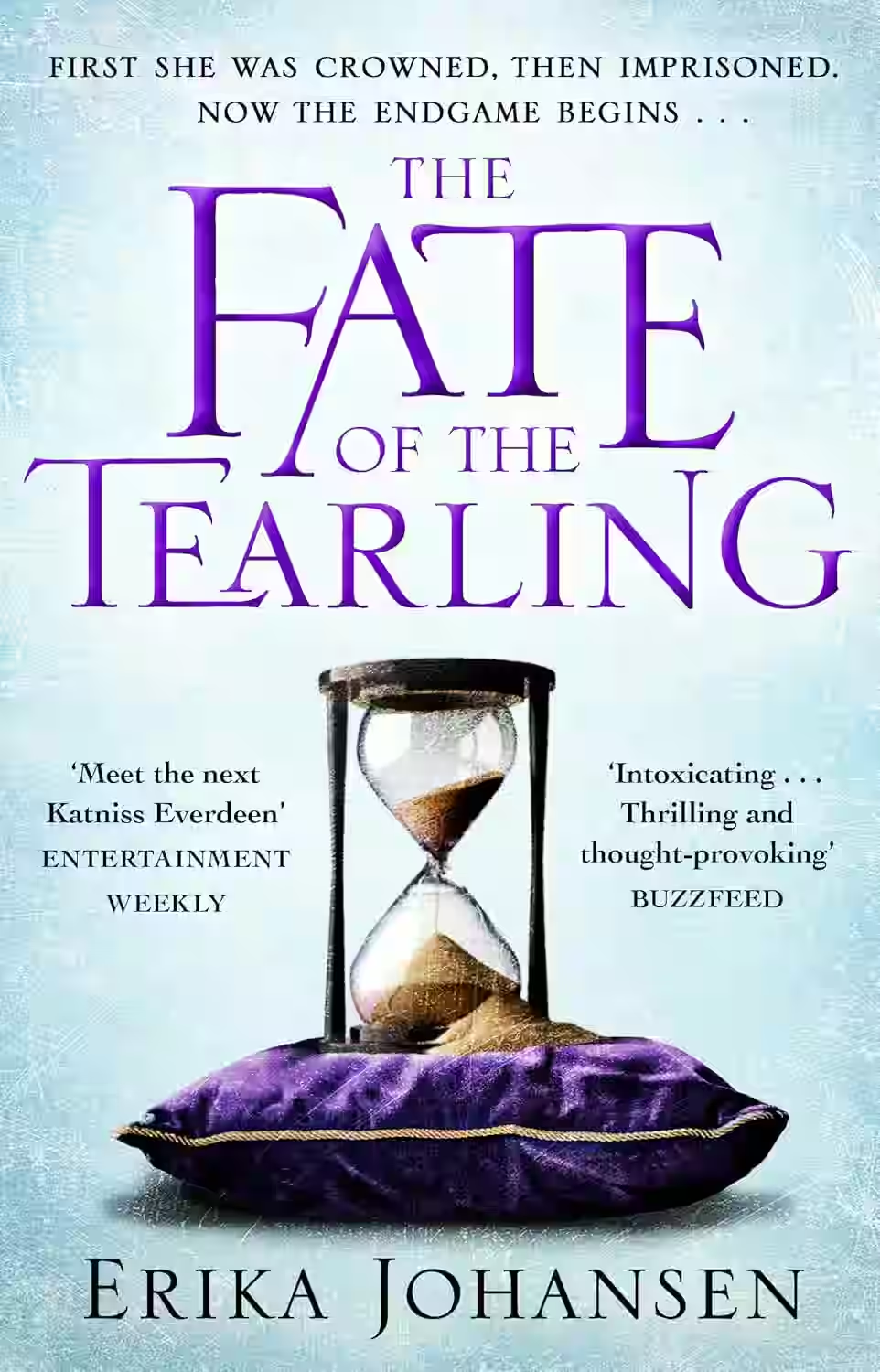
The Fate of the Tearling
Series: Queen of the Tearling (#3)
In 'The Fate of the Tearling,' Erika Johansen concludes her captivating Tearling trilogy with a blend of fantasy, political intrigue, and introspective complexity. The story follows Queen Kelsea Raleigh Glynn as she grapples with the consequences of her past decisions and the looming threat of the sinister Red Queen. Throughout the narrative, Kelsea must confront her inner demons and the dark secrets of the Tear's origin. Johansen skillfully weaves parallel storylines and time periods, exploring themes of power, sacrifice, and redemption. The book is a bold and thought-provoking finale that challenges readers to rethink the nature of heroism and moral justice.
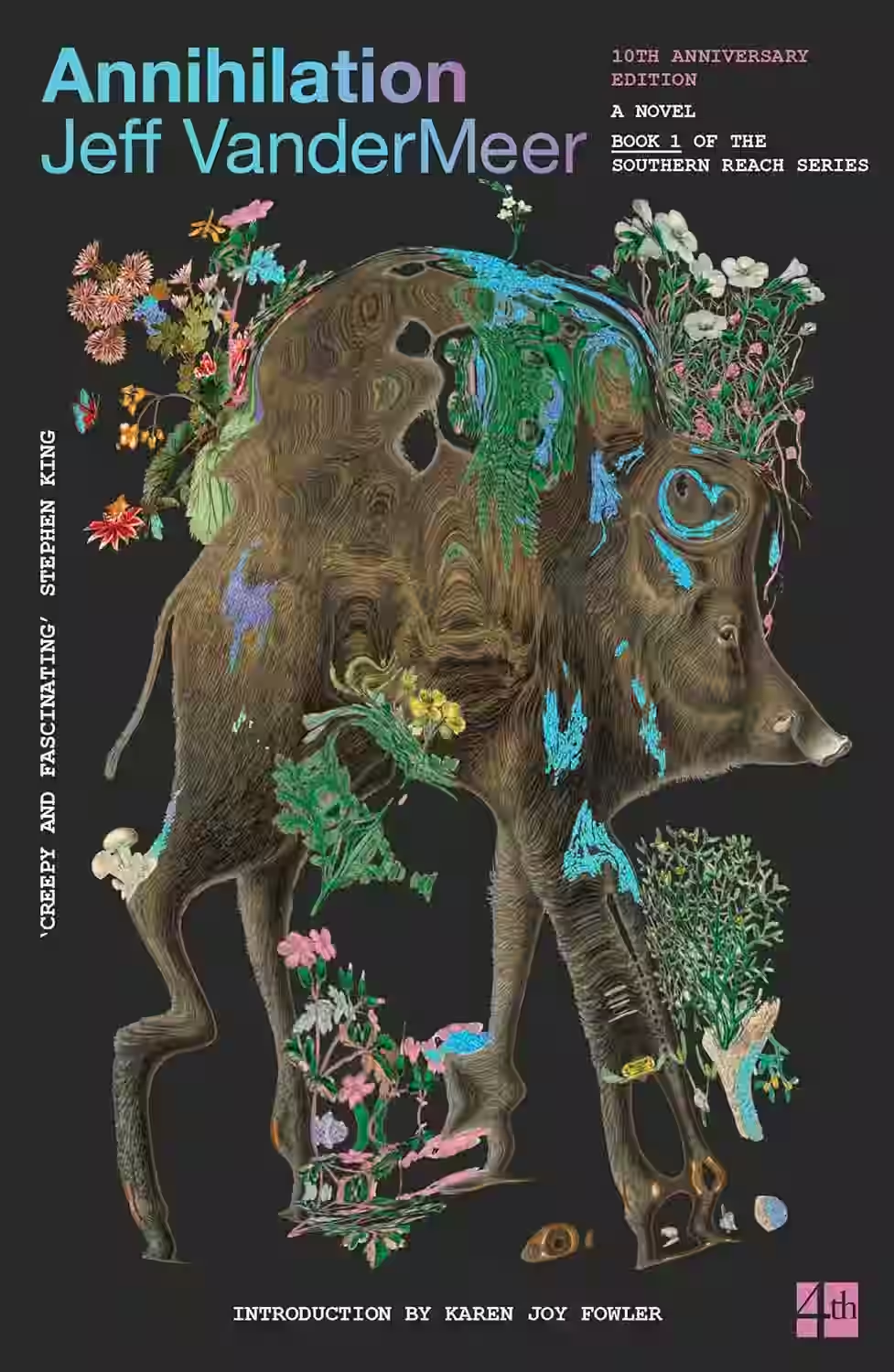
Annihilation
Series: Southern Reach (#1)
Annihilation, the first book in Jeff VanderMeer's Southern Reach Trilogy, plunges readers into the mysterious and unsettling world of Area X, a quarantined zone teeming with uncanny phenomena. The novel follows a biologist, part of an all-women exploratory team, on an expedition into this enigmatic landscape to uncover its secrets. As the group navigates the shifting borders and eerie silences of Area X, themes of identity, transformation, and the limits of human understanding loom large. VanderMeer's lyrical prose and disquieting atmosphere create a haunting narrative that blurs the line between science fiction and psychological thriller, leaving a lasting impression on readers intrigued by environmental and existential mysteries.
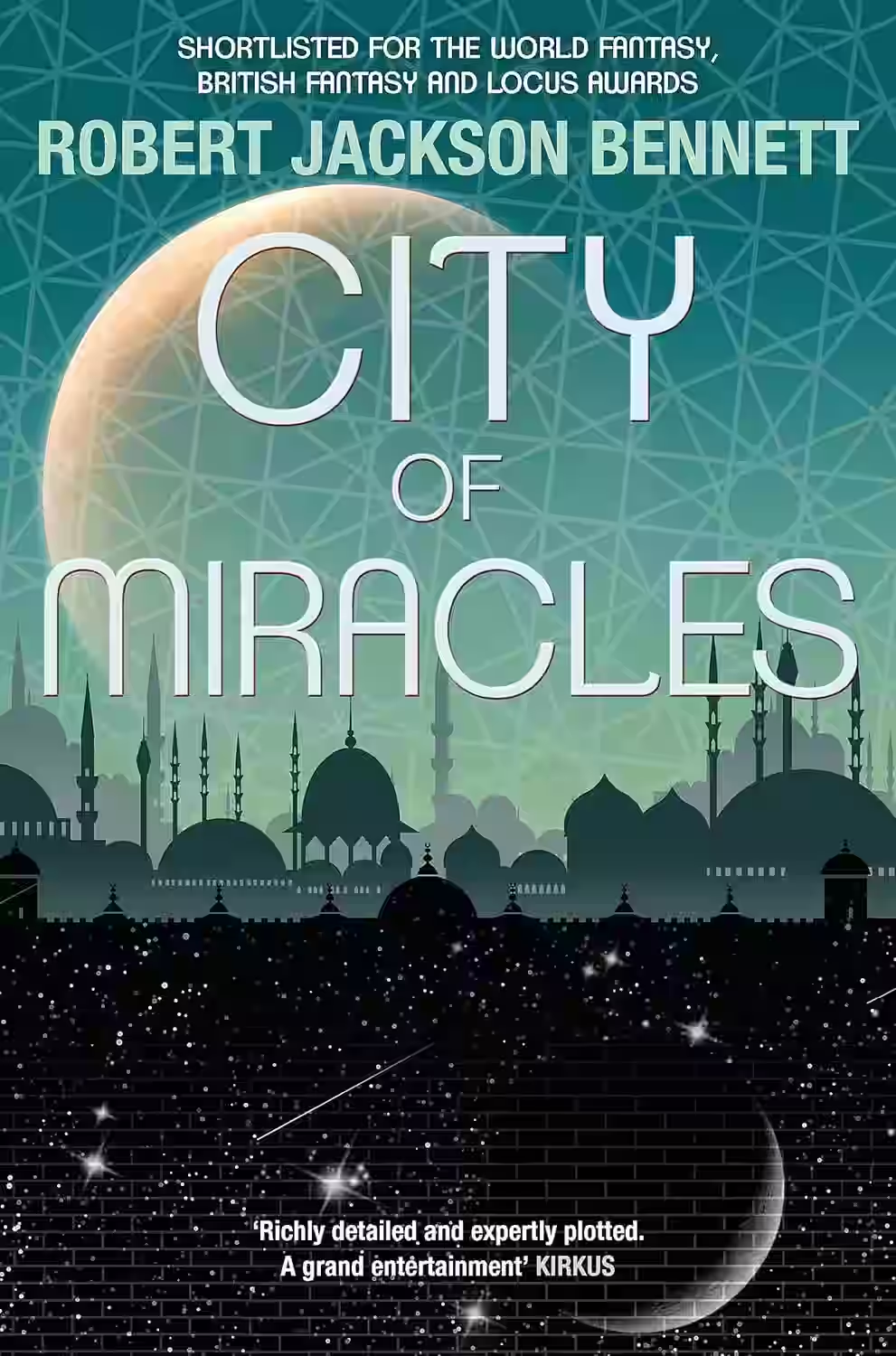
City of Miracles
Series: The Divine Cities (#3)
In 'City of Miracles,' the third installment of the Divine Cities trilogy by Robert Jackson Bennett, readers are thrust into a riveting tale of revenge and redemption. After the assassination of Prime Minister Shara, the once legendary spy Sigrud je Harkvaldsson is drawn back to the city he left behind. Determined to avenge his friend's death, Sigrud uncovers a plot that suggests miraculous forces at play. This novel ingeniously combines high-stakes action with profound emotional depth, delving into themes of grief, personal transformation, and the lingering effects of divine influence in a mortal realm. Bennett's intricate world-building and compelling character arcs culminate in a masterful finale. The narrative is both thrilling and introspective, ensuring a deeply immersive reading experience.
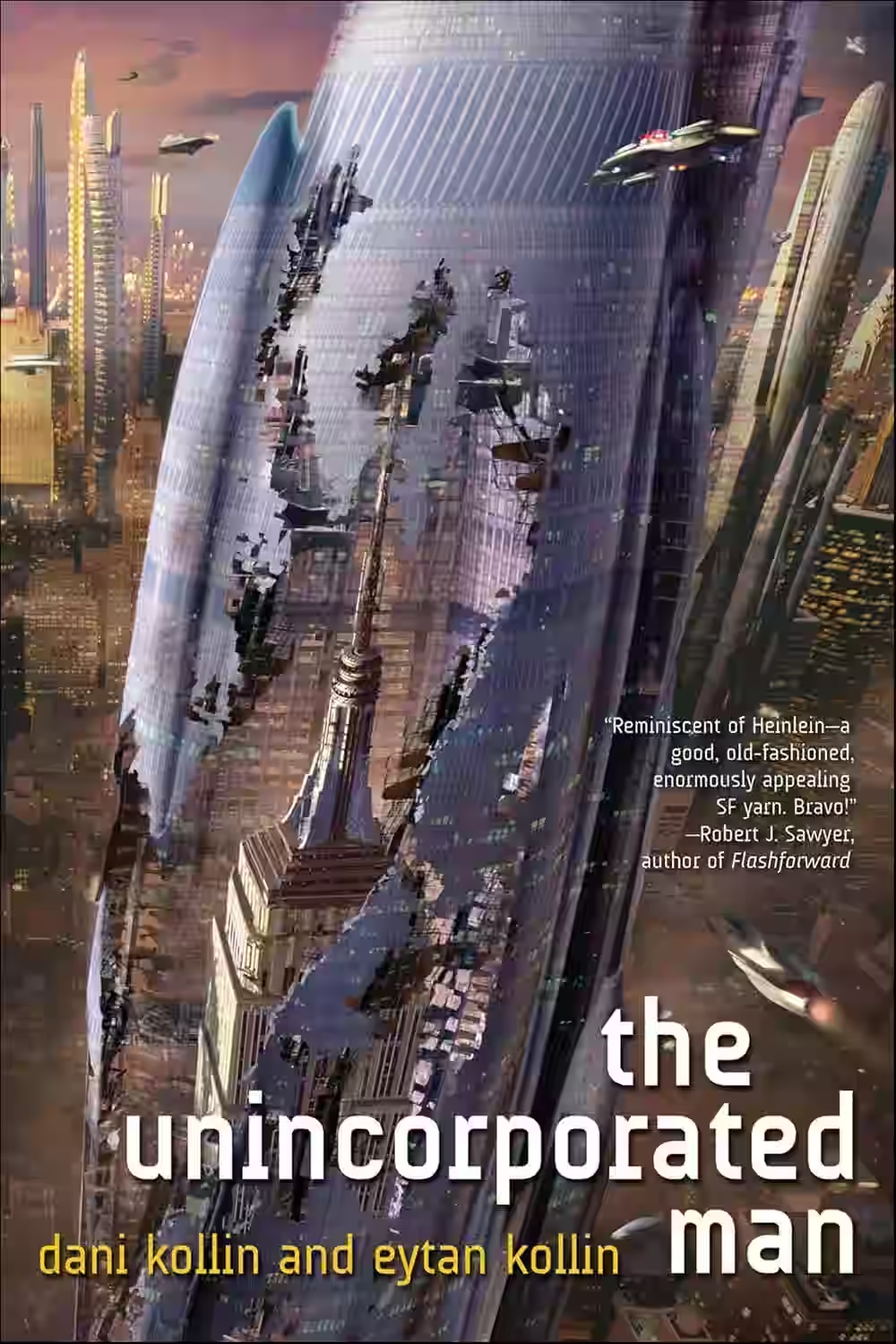
The Unincorporated Man
Series: The Unincorporated Man (#1)
The Unincorporated Man by Dani Kollin is a thought-provoking science fiction novel that delves into the consequences of extreme capitalism and personal autonomy. Set in a future where individuals are owned through shares traded in a lively stock market, the story follows Justin Cord, a wealthy 21st-century man who wakes up after being cryogenically frozen for centuries. Justin's struggle to exert his autonomy challenges the societal norms of a world no longer valuing personal freedom over economic gain. Though rich with futuristic elements, the novel also deeply examines human identity, free will, and the moral boundaries of capitalism, making it a compelling read for fans of speculative fiction and political philosophy. The dynamic plot and intriguing premise encourage readers to question their own beliefs about freedom and ownership in the context of society's increasing commodification.
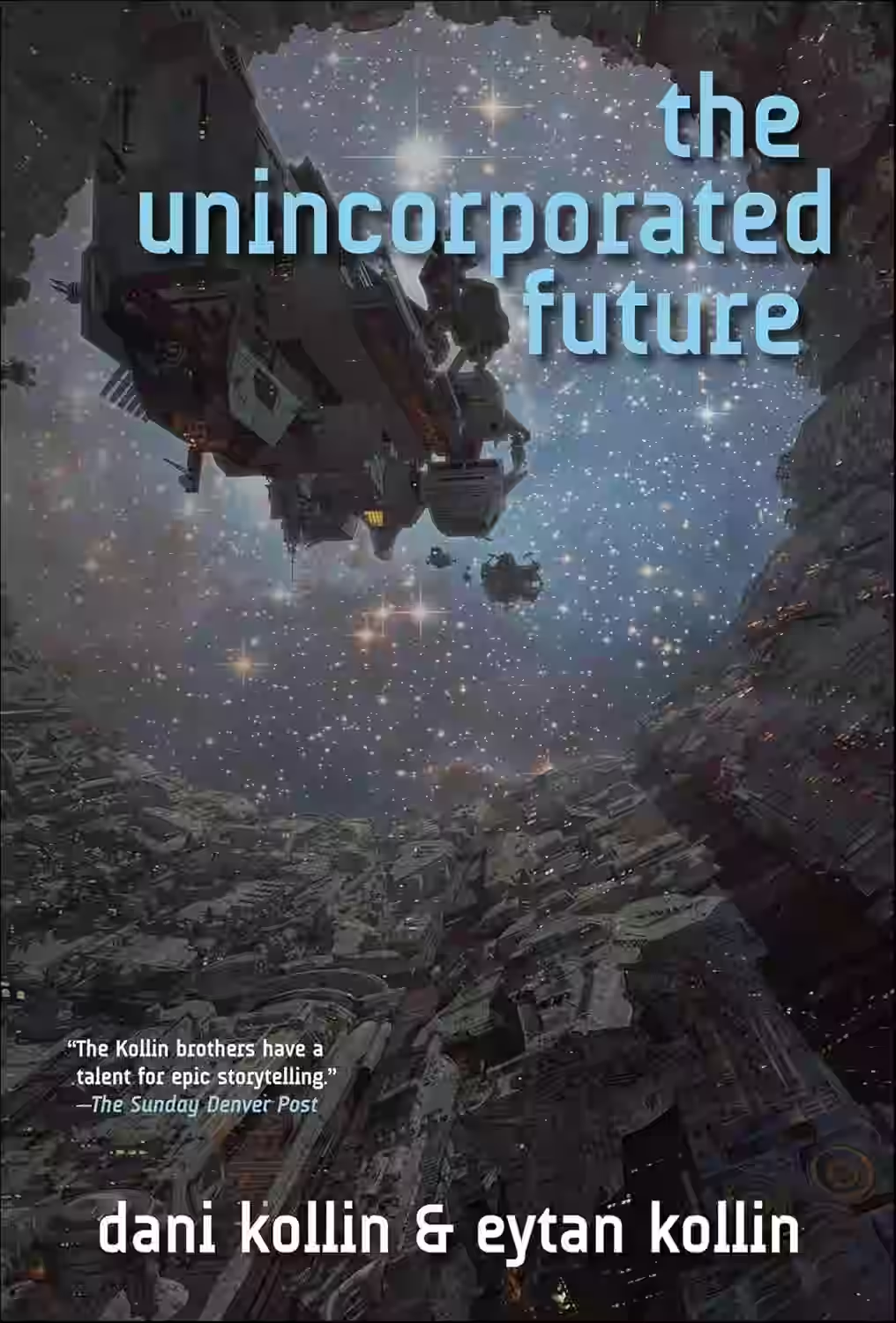
The Unincorporated Future
Series: The Unincorporated Man (#4)
In 'The Unincorporated Future' by Dani Kollin, readers are plunged into a richly imagined universe where the struggle between corporate power and individual freedom reaches its zenith. This sci-fi novel, the concluding volume in the Unincorporated series, paints a tapestry of interstellar politics and revolution as Justin Cord, the spiritual leader of the human diaspora, battles against the Balkanization of space and the encroaching corporatocracy. The book weaves intricate political intrigue with personal drama, questioning the true price of freedom and the overarching influence of corporations on human autonomy. Kollin masterfully blends innovative world-building with a fast-paced narrative, leaving readers contemplating the societal dynamics of our own world. Its vivid characterization deepens the plot, ensuring this futuristic saga resonates with both fans of the series and newcomers to the genre.
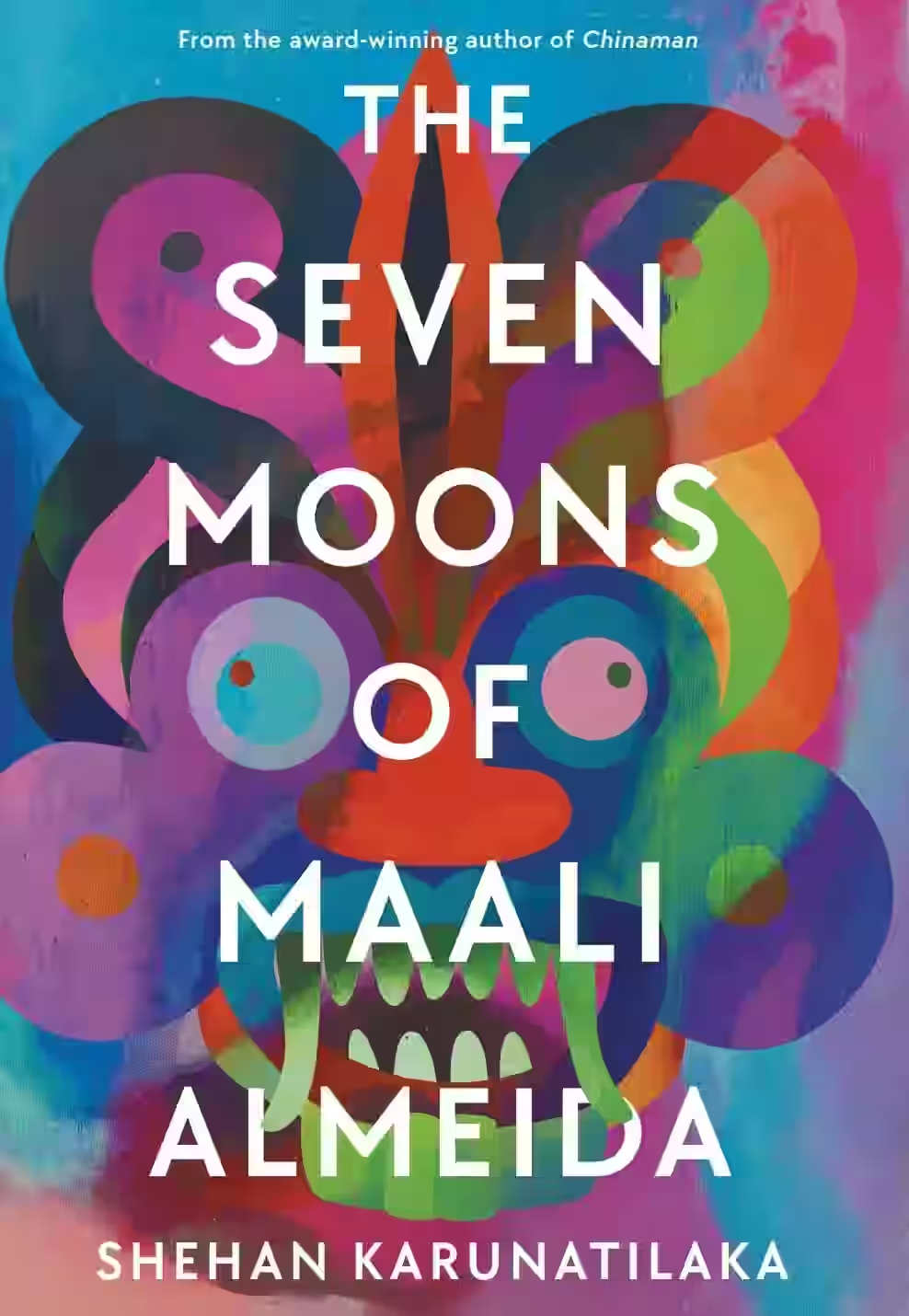
The Seven Moons of Maali Almeida
Set in 1980s Sri Lanka, The Seven Moons of Maali Almeida follows the titular character, a war photographer who finds himself in the afterlife with seven days to uncover the truth behind his death. Navigating a bureaucratic spirit world, Maali seeks to expose the atrocities of the civil war through his hidden photographs. Karunatilaka blends satire, fantasy, and political commentary to explore themes of justice, memory, and the complexities of a nation in turmoil.

Matched
by Ally Condie
Series: Matched (#1)
Ally Condie's 'Matched' captivates readers with its thought-provoking exploration of a dystopian society where choices are a luxury. Set in a world meticulously controlled by 'The Society', life's most intimate decisions — from one's occupation to a marriage partner — are made by authorities. The protagonist, Cassia Reyes, initially trusts the system. However, when a glitch in the Matching Ceremony suggests a different partner, she begins to question the perfection of the world she's known. As Cassia navigates the complexities of love, free will, and individuality, readers are invited to ponder the balance between safety and freedom. Condie's lyrical prose and intricate plotting make 'Matched' a compelling read that challenges the norms of a perfect, controlled society, leaving a lasting impact on its audience.

City of Saints and Madmen
Jeff VanderMeer's 'City of Saints and Madmen' is a mesmerizing entry into the world of speculative fiction, inviting readers into the fantastical city of Ambergris. Known for his lush prose and imaginative storytelling, VanderMeer delves into the eccentricities of this city, weaving together tales of intrigue, madness, and mystery. The book is a mosaic of stories, each revealing more about the bizarre inhabitants and history of Ambergris. VanderMeer employs an unconventional narrative style, blending elements of horror, fantasy, and surrealism. Themes of obsession, reality versus illusion, and the nature of madness permeate the narrative, creating an immersive experience. Its rich world-building and unpredictable plots captivate the imagination, making it both a challenging and rewarding read, and a cornerstone contribution to the New Weird literary genre.
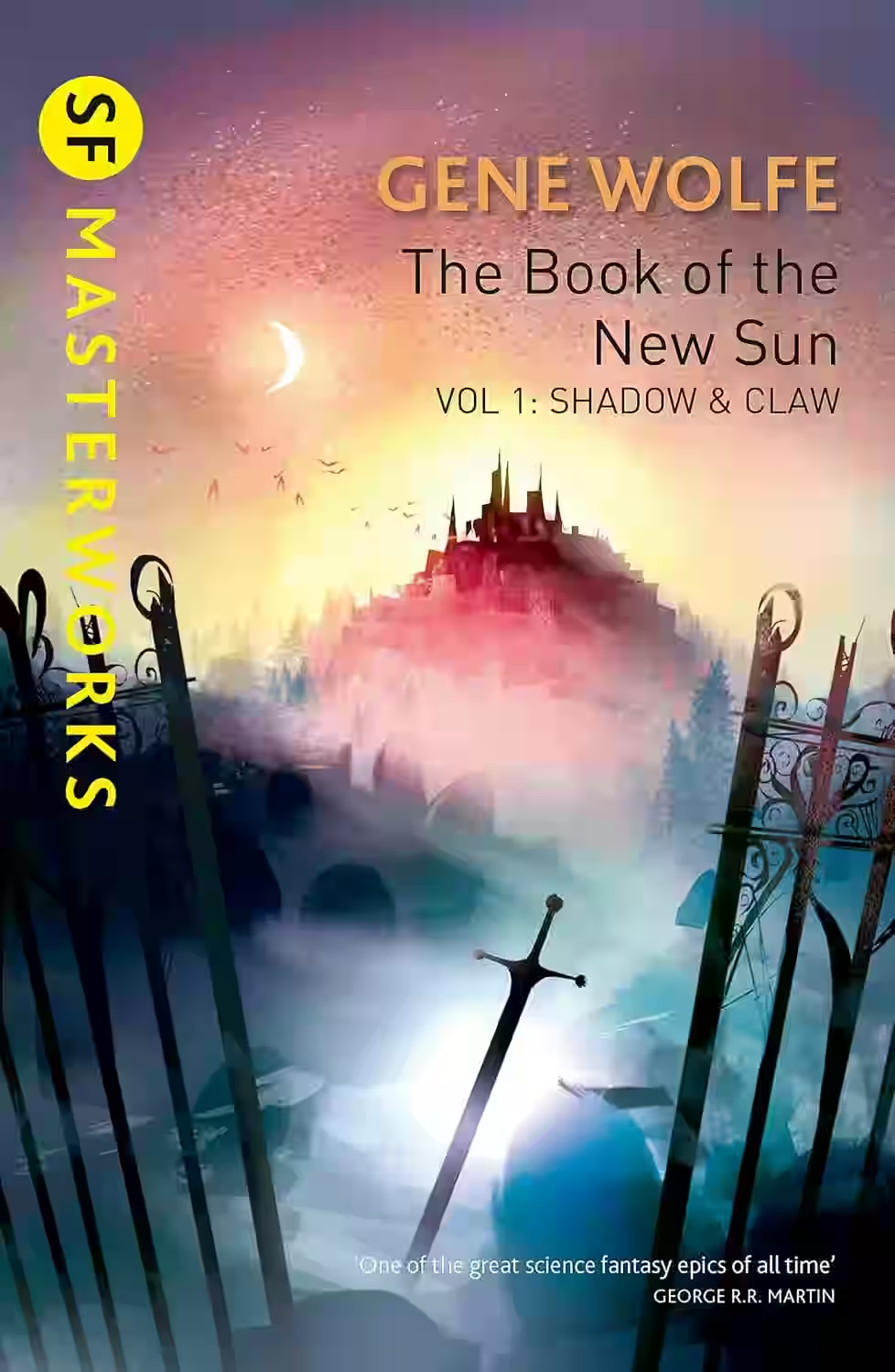
The Book of the New Sun
by Gene Wolfe
Immerse yourself in the intricate and mind-bending narrative of 'The Book of the New Sun' by Gene Wolfe, a science fiction masterpiece that challenges perceptions and transcends genre boundaries. Set in a distant future where Earth is a distant memory, follow the journey of Severian, a torturer with a complex moral compass, as he navigates a world filled with enigmatic characters, cryptic symbols, and ancient technologies. Through Wolfe's lyrical prose and labyrinthine plot, themes of memory, identity, power, and destiny are skillfully woven together, leaving readers questioning reality and pondering philosophical conundrums long after the final page. A must-read for fans of speculative fiction seeking a challenging and rewarding experience.
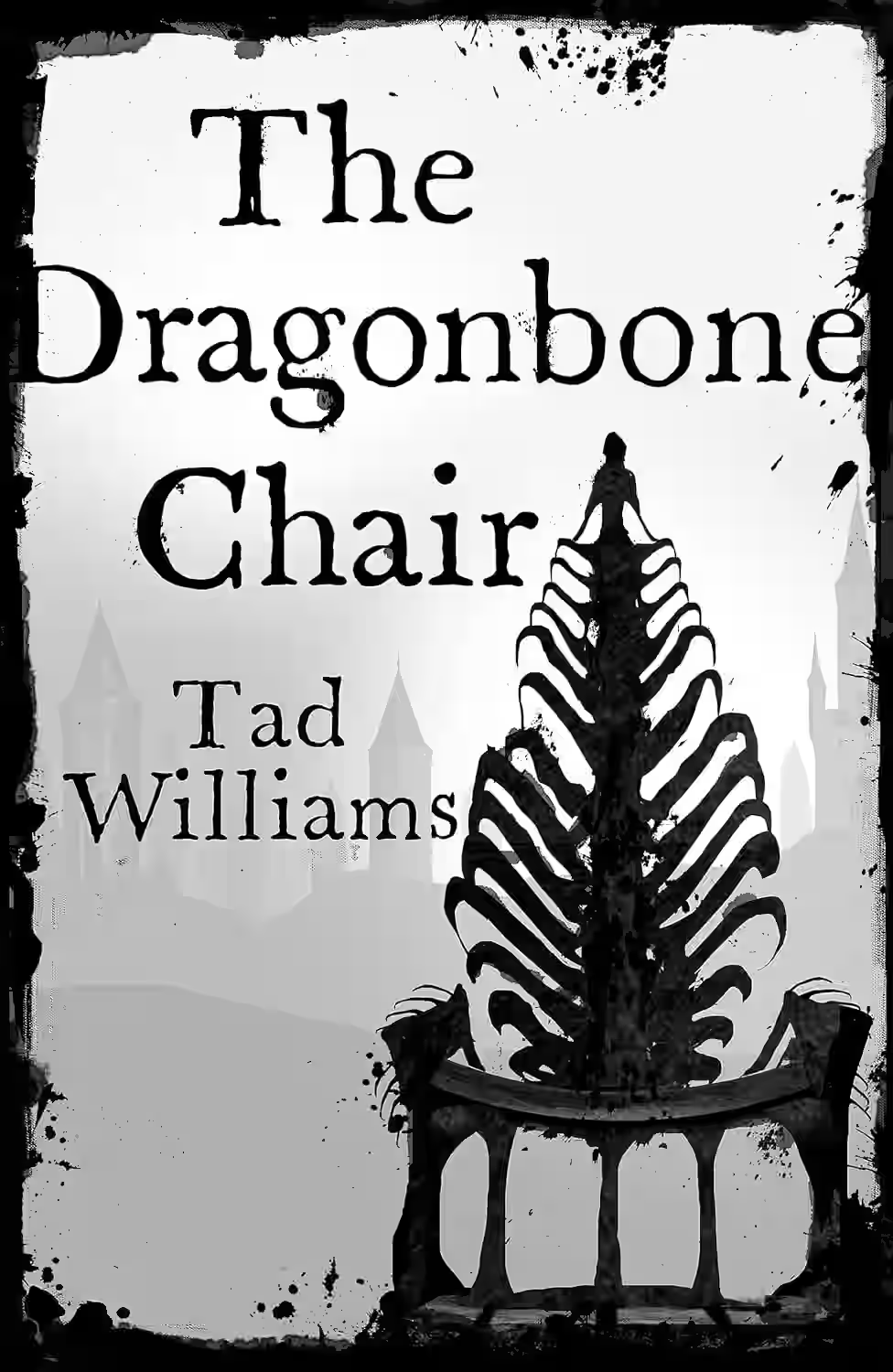
The Dragonbone Chair
by Tad Williams
Series: Memory, Sorrow, and Thorn (#1)
Tad Williams' 'The Dragonbone Chair' embarks on a richly detailed journey through the realm of Osten Ard, which captivates readers with its classic high fantasy elements. This first book in the 'Memory, Sorrow, and Thorn' series beautifully weaves the tale of Simon, a scullery boy, unexpectedly caught in a sweeping quest filled with intrigue, betrayal, and ancient magic. Williams crafts an intricate world where the ordinary collides with the extraordinary, driving an epic narrative underscored by themes of growing up, power struggles, and the complexities of good versus evil. His characters are deeply developed, drawing readers into their truths and vulnerabilities. The novel is a testament to the transformative power of storytelling, resonating with fans of Tolkien's tradition but infused with its unique depth and imaginative breadth, inviting reflection on its rich and immersive lore.
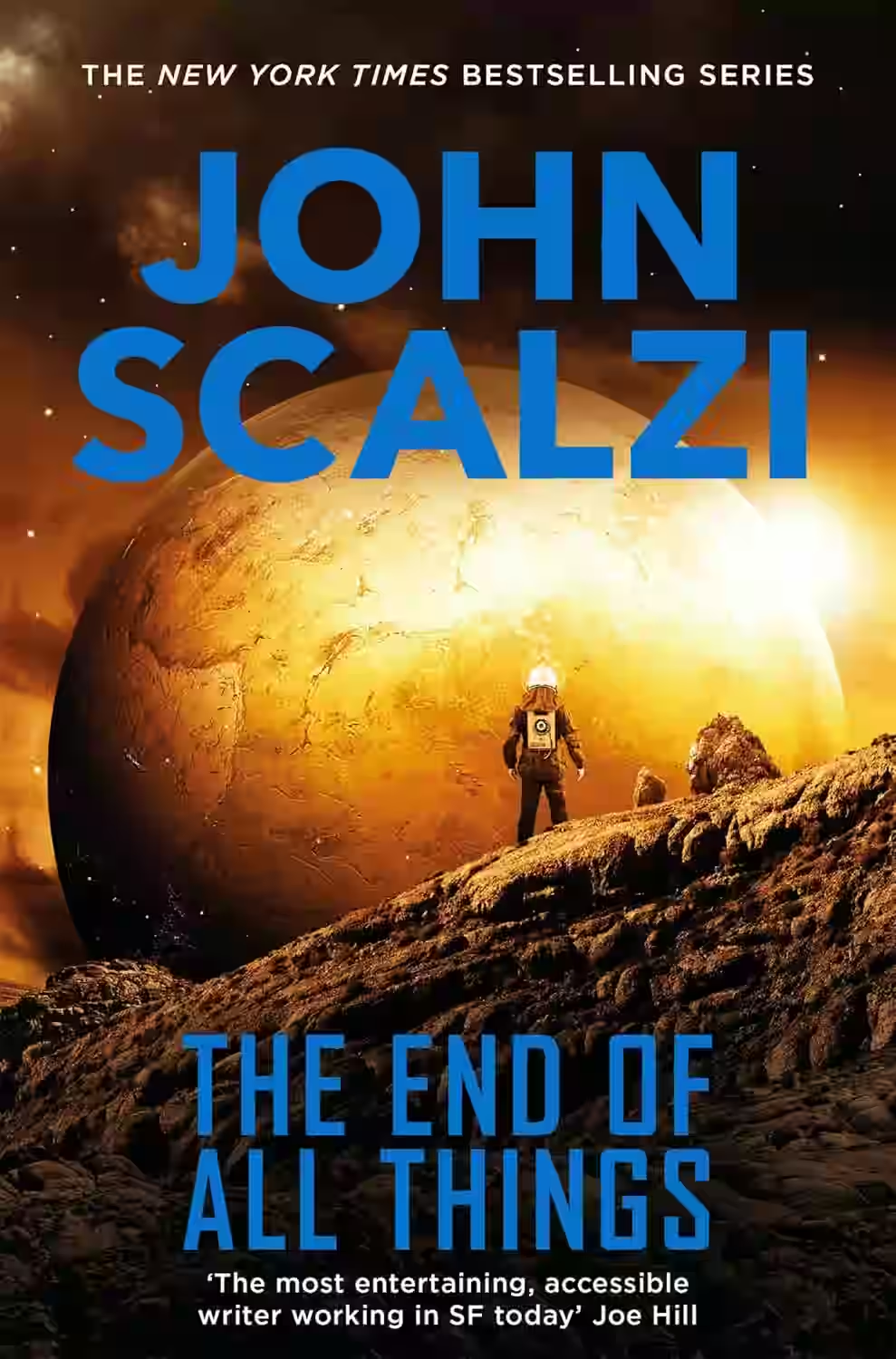
The End of All Things
by John Scalzi
Series: Old Man’s War (#6)
John Scalzi's 'The End of All Things' serves as a thrilling continuation of his Old Man's War series, offering a blend of hard-hitting political intrigue and speculative military strategy. The narrative is composed of four interconnected novellas, each contributing to an overarching storyline that explores the fragility and resilience of interstellar alliances. Scalzi delves into themes of loyalty, identity, and power, weaving a complex tale about the construction and deconstruction of civilizations. His deft use of humor and sharp dialogue enhances the novel's pacing, while providing thoughtful commentary on the human condition. Readers looking for a rich sci-fi tapestry with a strong foundation in political machinations will find this entry both satisfying and thought-provoking.
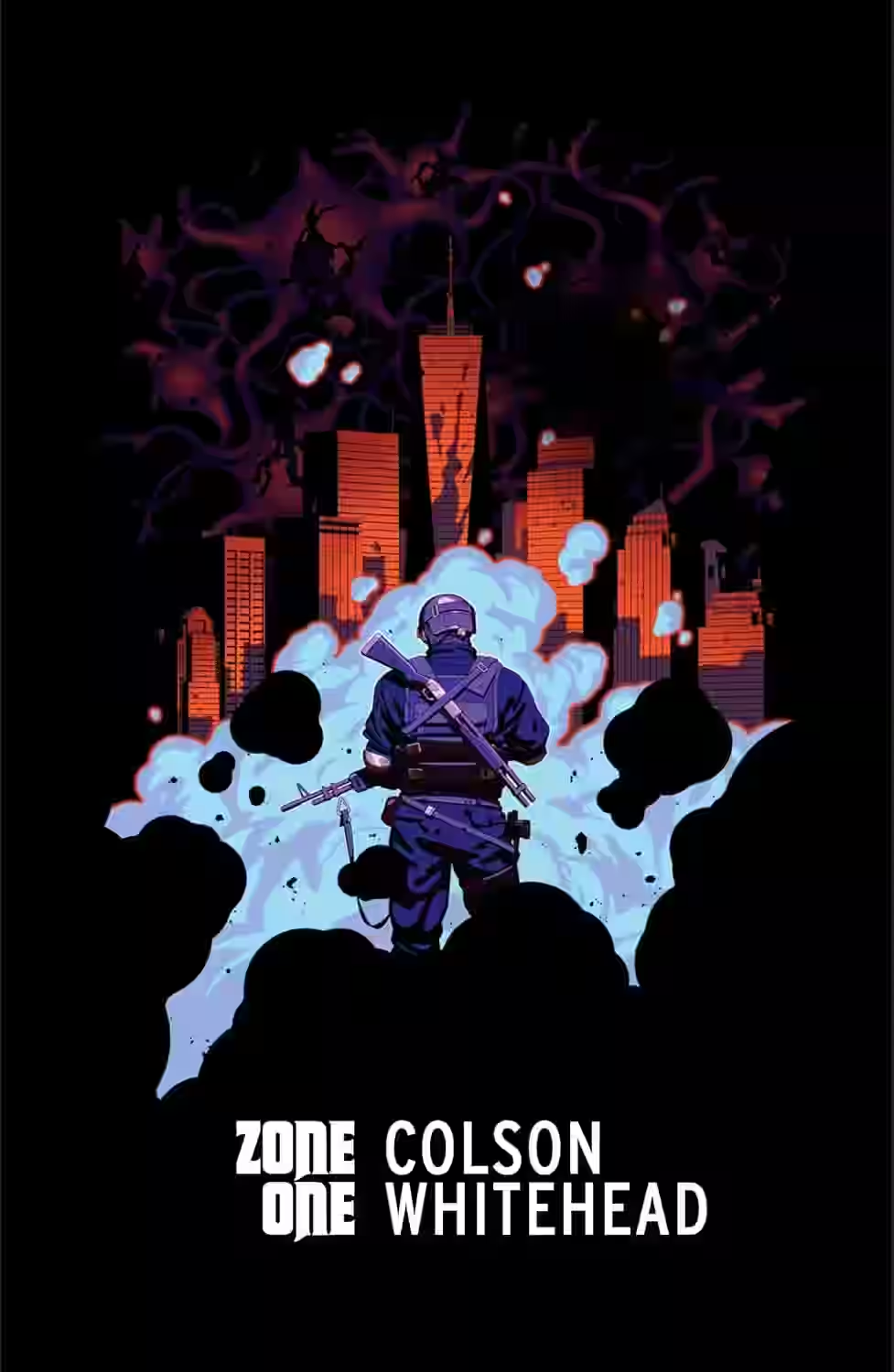
Zone One
In Zone One, Colson Whitehead presents a literary take on the zombie apocalypse genre. The novel follows Mark Spitz, a survivor tasked with clearing Manhattan of residual zombies, known as "stragglers," after a devastating plague. As he navigates the desolate city, Mark reflects on the pre-apocalyptic world and the psychological toll of survival. Whitehead's narrative delves into themes of memory, trauma, and the human condition, offering a contemplative perspective on societal collapse. The book blends horror elements with incisive social commentary, elevating the zombie narrative to a profound exploration of resilience and identity.

Sever
Series: Chemical Garden (#3)
In 'Sever,' the final installment of Lauren DeStefano’s Chemical Garden Trilogy, readers are drawn into a world where hope emerges amidst bleakness. The protagonist, Rhine, continues her quest for freedom as she confronts the malevolent forces that have kept her captive. Set against a dystopian backdrop, the narrative delves into themes of survival, loyalty, and the quest for autonomy. DeStefano masterfully intertwines a gripping plot with emotional depth, providing satisfying closure to the trilogy. Through elegant prose and well-developed characters, 'Sever' explores the resilience of the human spirit and the complexities of love and sacrifice, leaving a lasting impression.

We
Yevgeny Zamyatin's "We" is a seminal piece of dystopian literature that prefigures many themes explored by later classic works like Orwell's "1984" and Huxley's "Brave New World." Set in the highly regimented One State, a society where individuals are mere cogs in a larger machine and personal freedom is subjugated to an absolute and oppressive ideology, the novel explores the nature of individuality and freedom through the protagonist, D-503, a mathematician who begins to question the infallibility of the state after falling in love with a mysterious woman. Zamyatin's work is notable not just for its powerful narrative and rich characterizations, but also for its incisive critique of authoritarianism and its enduring philosophical questions about the human condition, making it a profound and timeless read.
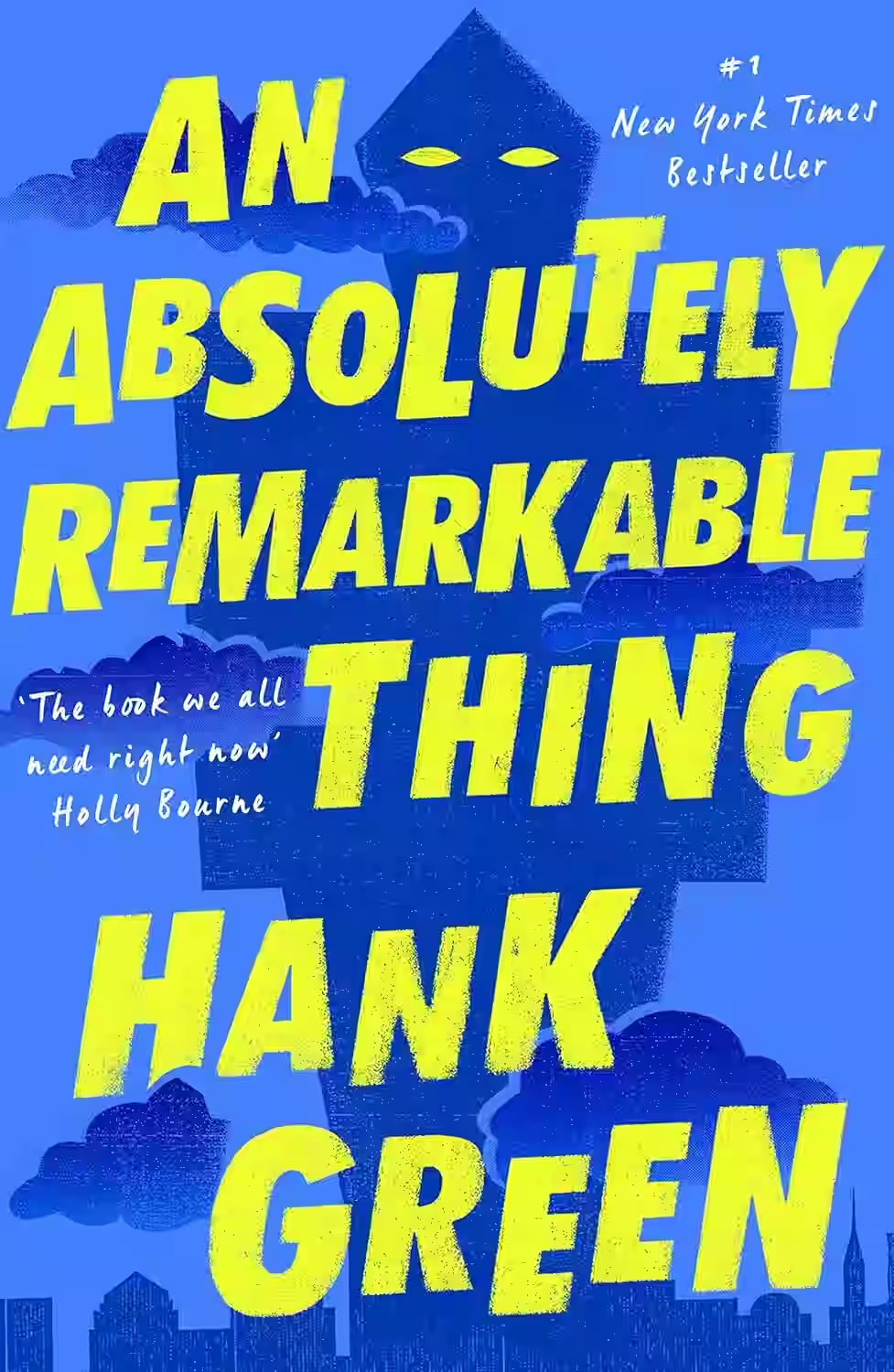
An Absolutely Remarkable Thing
by Hank Green
In 'An Absolutely Remarkable Thing' by Hank Green, readers plunge into a world where a mysterious figure known as Carl transforms society with a series of perplexing statues around the globe. The protagonist April May becomes an overnight celebrity as one of the first to discover and share information about these statues. As the story unfolds, themes of social media, fame, relationships, and the consequences of rapid change become central. Green expertly weaves a narrative that explores the complexities of human nature and the allure of power and recognition. With a mix of humor, suspense, and reflection, this book challenges readers to contemplate the impact of their actions in an increasingly connected world.

Do Androids Dream of Electric Sheep?
Philip K. Dick's "Do Androids Dream of Electric Sheep?" is a seminal work of science fiction that delves into the complexities of identity, empathy, and the boundaries between human and machine. Set in a post-apocalyptic future where Earth is scarred by nuclear fallout, the novel follows Rick Deckard, a bounty hunter tasked with 'retiring' rogue androids. As Deckard navigates this desolate world, he grapples with his own understanding of humanity, morality, and the distinction between artificial and organic beings. The novel explores themes of existentialism and the quest for meaning in an increasingly dehumanized society. Its influence extends beyond literature, having inspired the iconic film adaptation "Blade Runner," and it remains a compelling exploration of consciousness and the human condition.
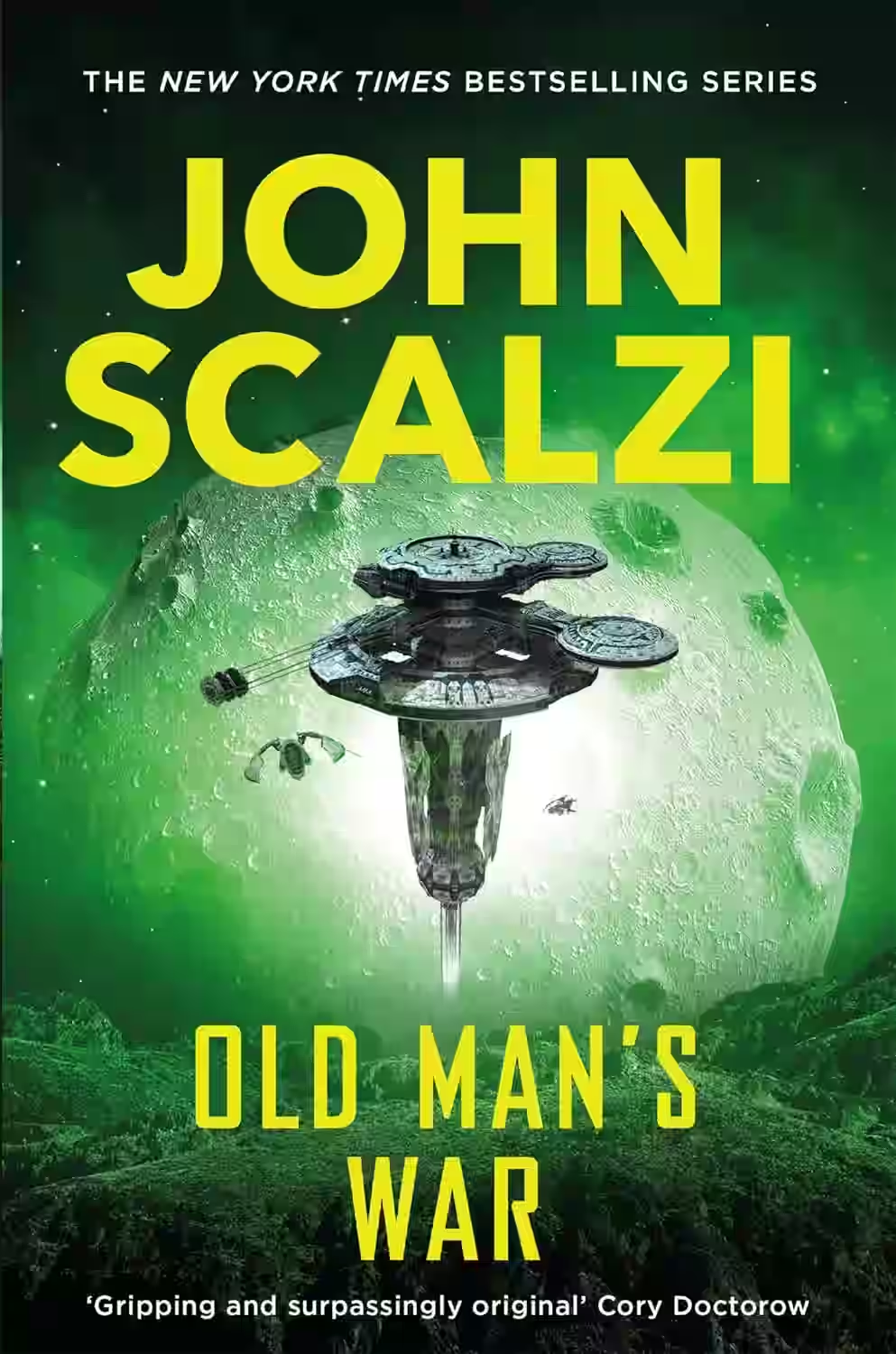
Old Man's War
by John Scalzi
Series: Old Man’s War (#1)
John Scalzi's 'Old Man's War' offers a fresh take on military science fiction, blending adventure with insightful explorations of aging, humanity, and war. The novel follows John Perry, who, at 75 years old, enlists in the Colonial Defense Forces, leaving Earth behind for a future he never expected. Scalzi crafts a compelling universe where the elderly are rejuvenated into youthful, enhanced bodies to fight in interstellar conflicts. The book is lauded for its humor, brisk pacing, and thought-provoking examination of identity and mortality. With its balance of action and introspection, 'Old Man's War' captivates both sci-fi fans and newcomers alike, making it a standout in the genre.
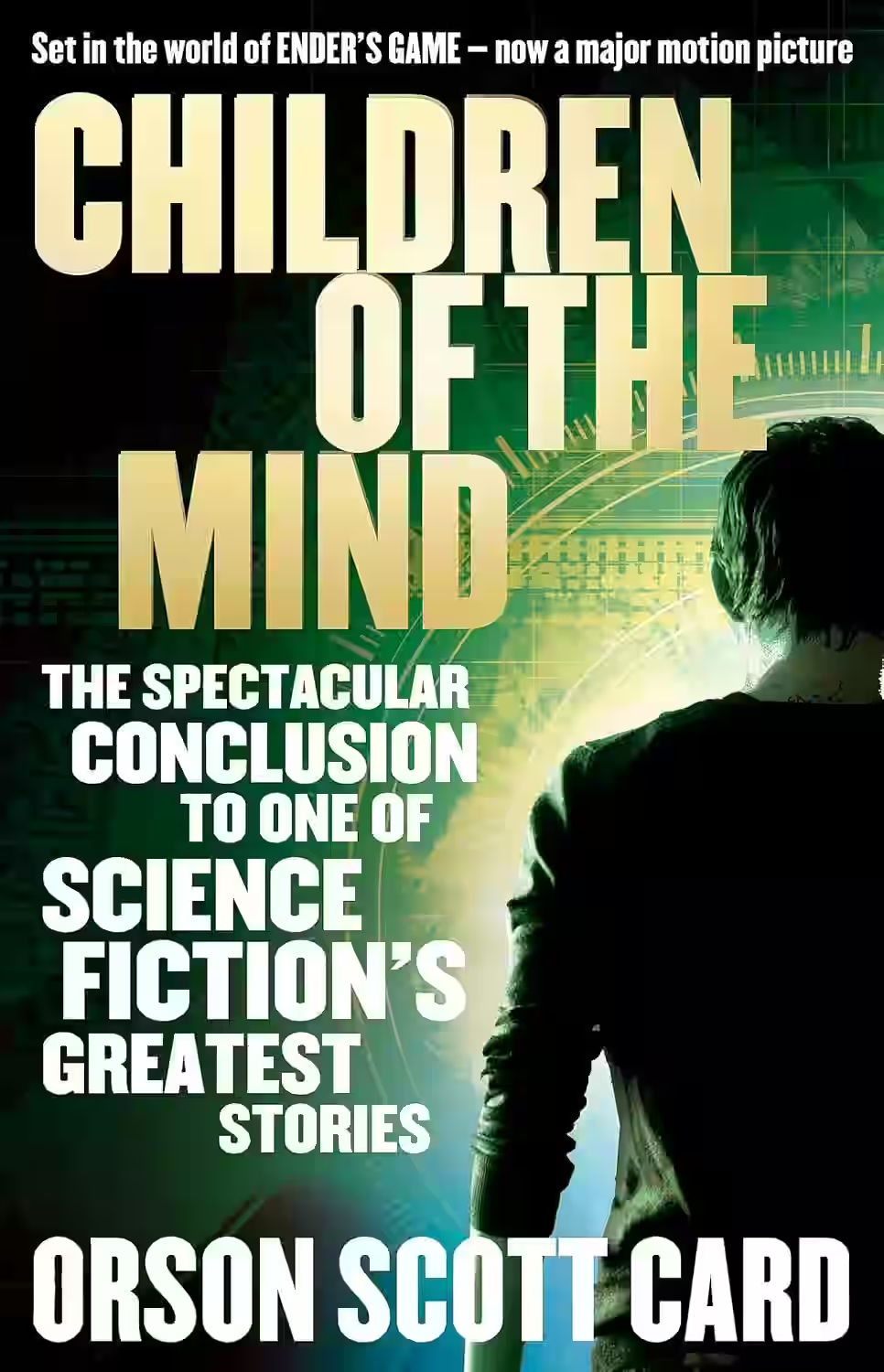
Children Of The Mind
Series: Ender Quintet (#4)
In Orson Scott Card's 'Children of the Mind,' the fourth installment of the beloved Ender's Game series, readers delve deeper into the complex mind of protagonist Andrew 'Ender' Wiggin as he navigates a strange new world, struggling with his own identity and moral dilemmas. The novel explores themes of consciousness, artificial intelligence, and the consequences of war, all while maintaining a gripping narrative filled with twists and turns. Card skillfully combines thought-provoking philosophy with intense action, creating a compelling read for fans of science fiction and psychological drama alike. 'Children of the Mind' is a fitting conclusion to Ender's saga, leaving readers both satisfied and contemplative.

For the Win
Cory Doctorow's 'For the Win' is a riveting exploration of the intersection between economics, technology, and global labor rights. Set in a near-futuristic world, the novel delves into the lives of gamers across the globe who engage in virtual economies, highlighting their struggle for fair labor practices. As characters from the United States, India, and China unite to form a virtual union, Doctorow skillfully illustrates the potential impact of digital and real-world activism. The story is a thought-provoking commentary on globalization and the power dynamics of economies, all wrapped in an engaging narrative filled with tension and optimism. 'For the Win' pushes readers to consider the implications of our increasingly interconnected economies and the role technology plays in shaping societal structures.
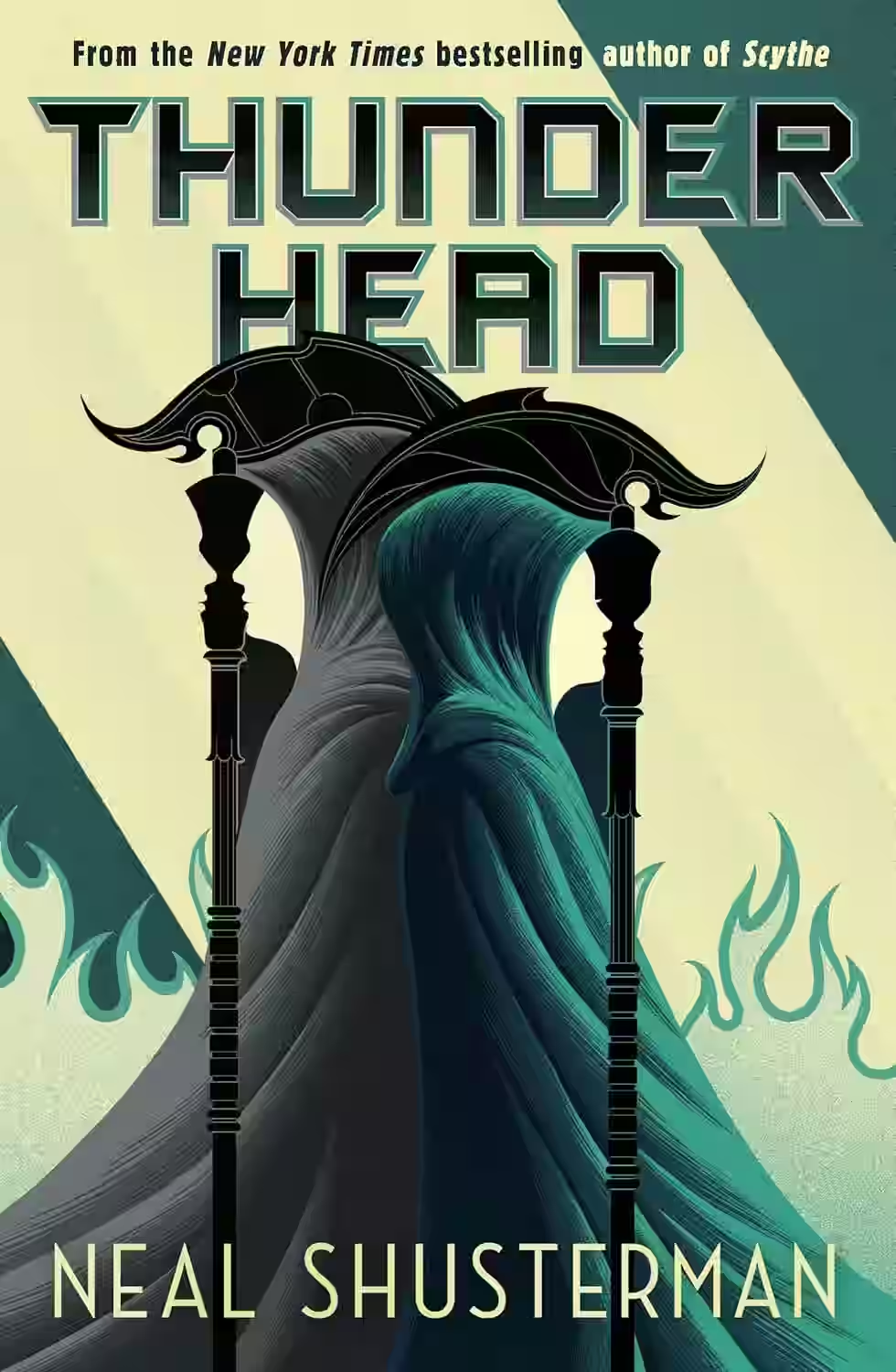
Thunderhead
Series: Arc of a Scythe (#2)
In Neal Shusterman's 'Thunderhead', the gripping sequel to 'Scythe', we delve deeper into a world where death has been conquered, but corruption lingers. The Thunderhead, an all-knowing AI controlling society, must grapple with its own limitations in governing humanity, while our protagonists Citra and Rowan face moral dilemmas and political intrigue. Shusterman deftly explores themes of power, mortality, and the consequences of immortality. With intense action sequences and thought-provoking ethical questions, 'Thunderhead' is a thrilling and intellectually stimulating read that challenges readers to ponder the meaning of life.
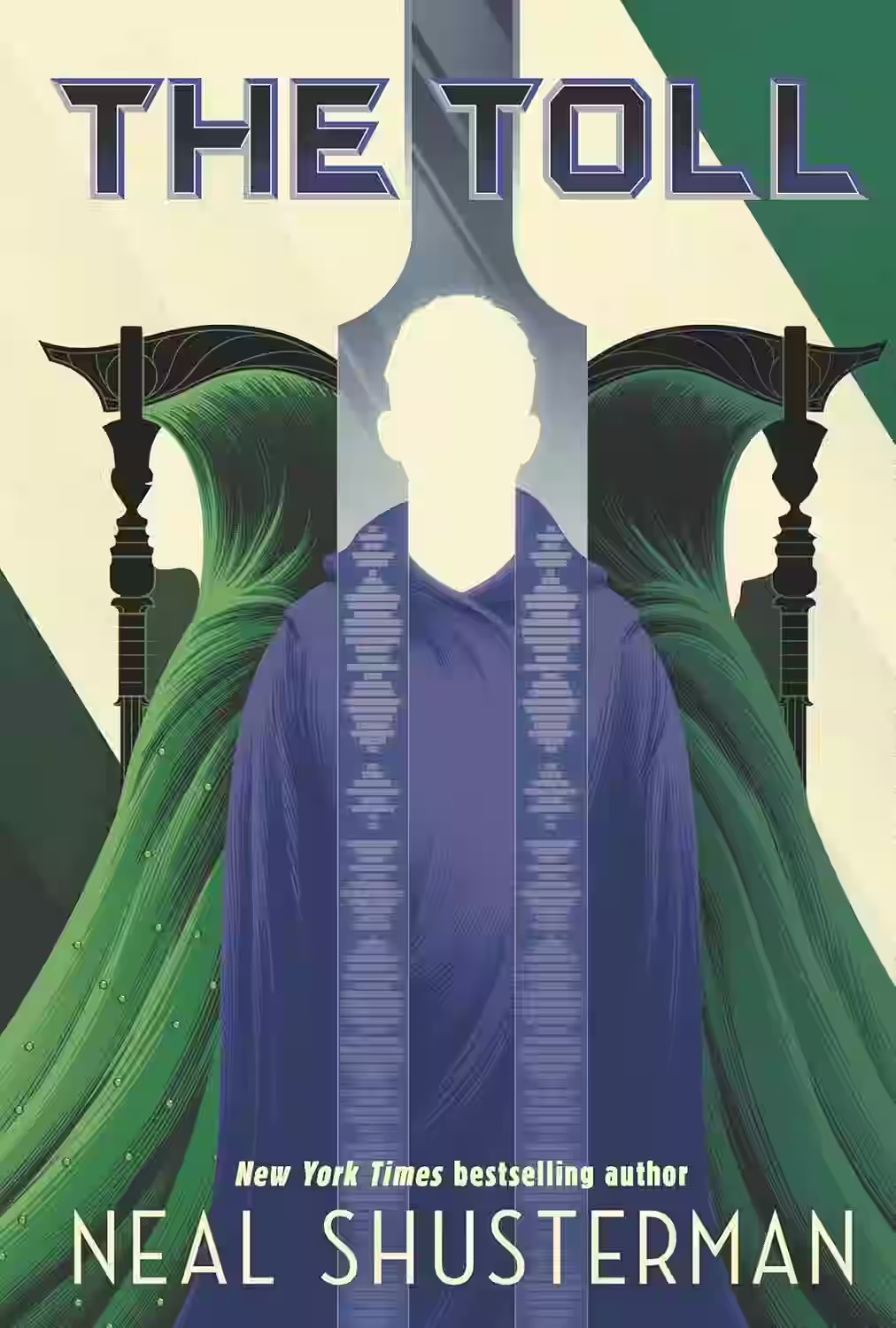
The Toll
Series: Arc of a Scythe (#3)
Neal Shusterman's 'The Toll' is a gripping conclusion to the thrilling Arc of a Scythe trilogy, exploring thought-provoking themes of power, corruption, and morality in a utopian society where death has been conquered. The story follows Citra and Rowan's diverging paths as they navigate a world on the brink of chaos, with the mysterious Thunderhead AI facing its greatest challenge yet. Shusterman masterfully weaves together intricate plotlines and complex characters, keeping readers on the edge of their seats until the final page. 'The Toll' is a richly imaginative and emotionally resonant tale that delves deep into the consequences of humanity's quest for immortality.
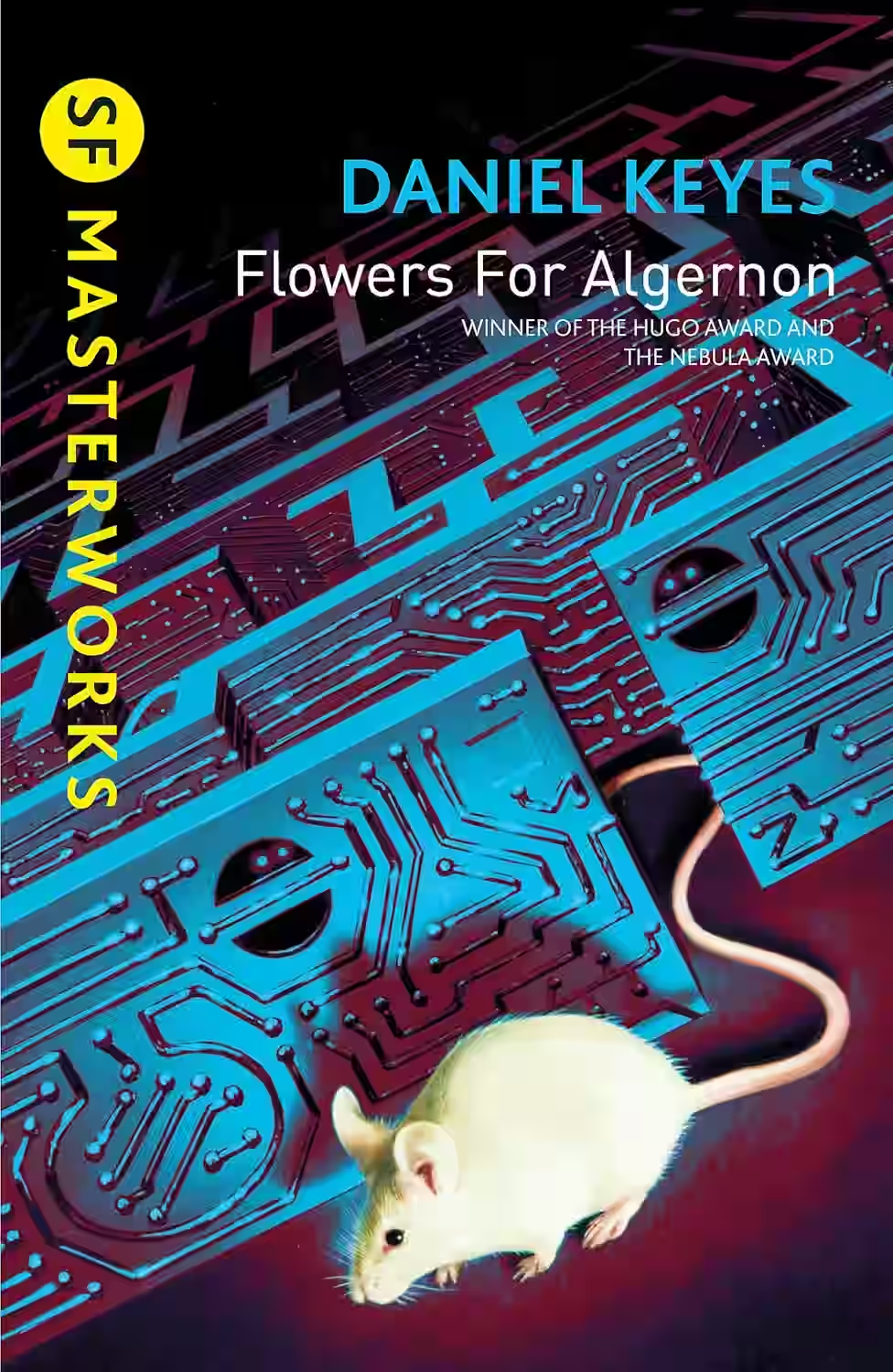
Flowers for Algernon
by Daniel Keyes
In Daniel Keyes' poignant novel 'Flowers for Algernon,' we journey alongside Charlie Gordon, a mentally disabled man whose life changes dramatically when he becomes the subject of an experimental surgery that enhances his intelligence. As Charlie's intellect grows, he grapples with his evolving relationships, deep existential questions, and the emotional complexities of his newfound self-awareness. The narrative powerfully examines themes of intelligence, humanity, loneliness, and the essence of being. Through Charlie's moving and introspective journey, Keyes explores the fragile nature of identity and the inherent human desire for connection and understanding.
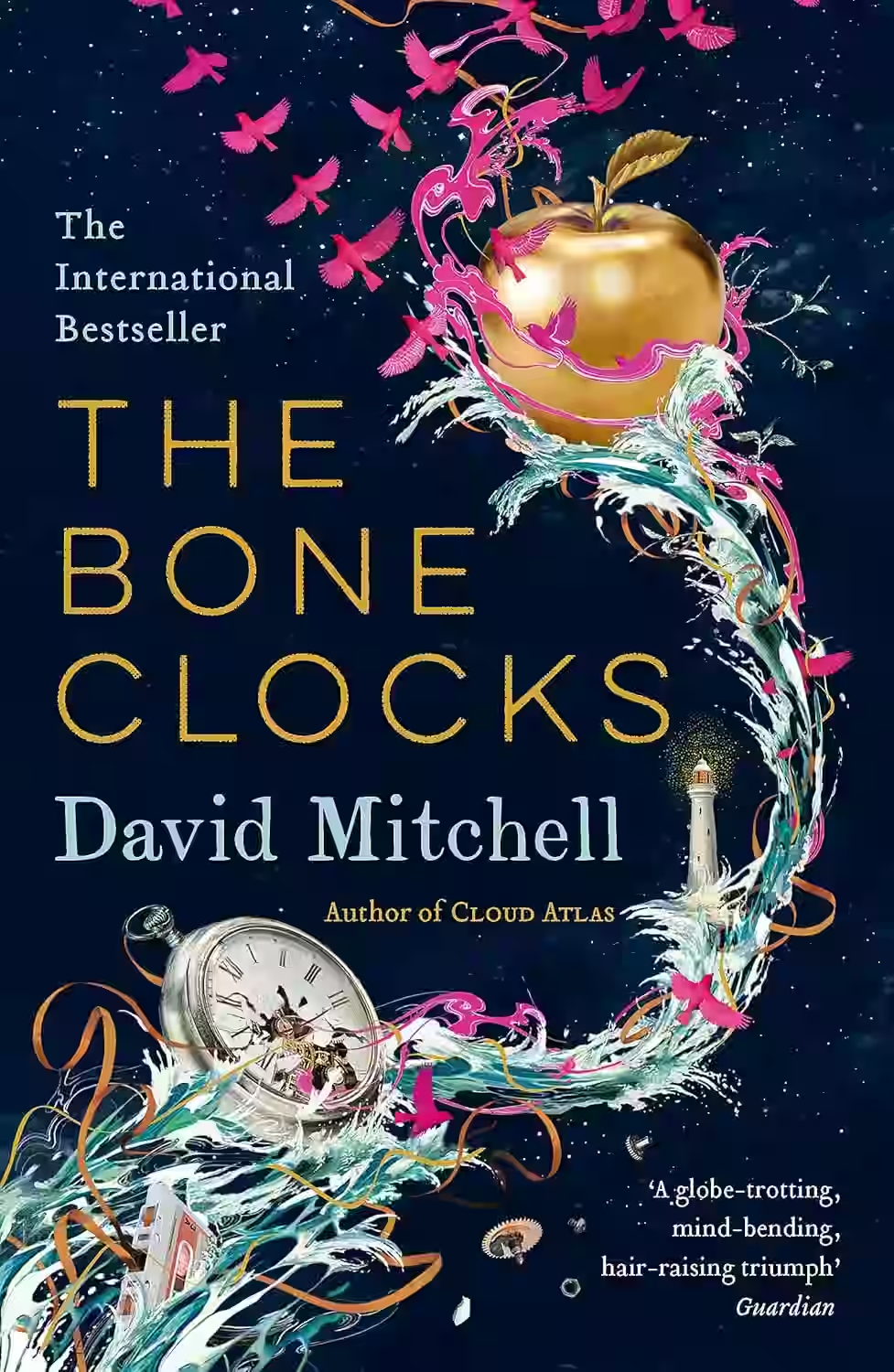
The Bone Clocks
In David Mitchell's ambitious novel 'The Bone Clocks,' he weaves a complex tapestry of interconnected stories that span across decades and genres. At its core, the book delves into themes of time, mortality, and the blurred lines between reality and fantasy. Through the eyes of protagonist Holly Sykes, readers are taken on a journey that combines elements of fantasy, mystery, and science fiction. Mitchell's intricate storytelling and vivid characters keep readers captivated as they navigate through different timelines and dimensions. 'The Bone Clocks' is a thought-provoking and immersive read that challenges perceptions of life and death.

Uglies
Series: Uglies (#1)
In Scott Westerfeld's dystopian novel 'Uglies', readers are transported to a future world where physical beauty is mandated by society. At the age of sixteen, citizens undergo compulsory cosmetic surgery to transform from 'Uglies' to 'Pretties'. The story follows Tally Youngblood, who is on the brink of her transformation, but her world is turned upside down when she meets a rebellious friend, Shay, who questions the societal norms. Themes of identity, conformity, and the nature of beauty are skillfully explored as Tally embarks on a journey that challenges her understanding of reality. Westerfeld's book offers sharp social commentary, action-packed sequences, and believable character development, making it an engaging read that probes thought-provoking issues pertinent to both adolescents and adults. 'Uglies' evokes reflection on the pressure for aesthetic perfection and the loss of individuality, resonating deeply with its readers and sparking conversations about modern beauty standards.